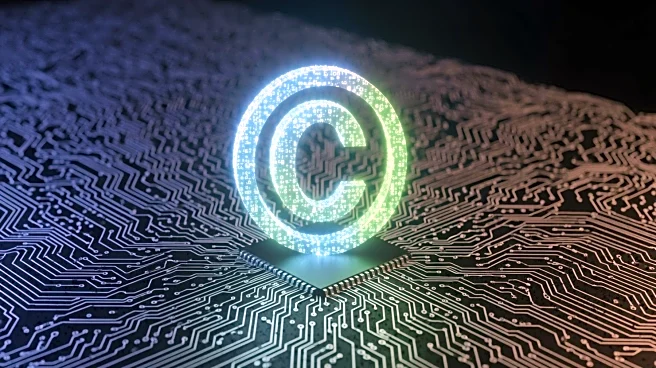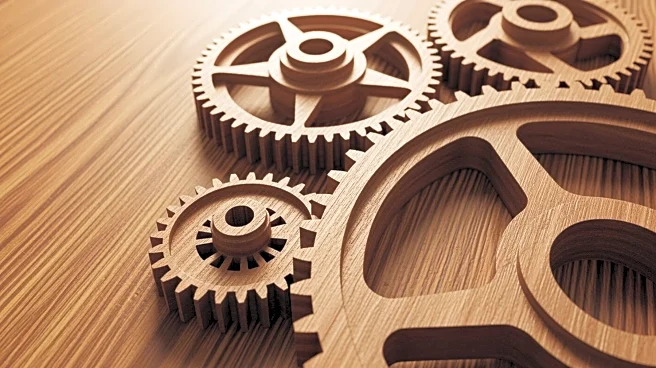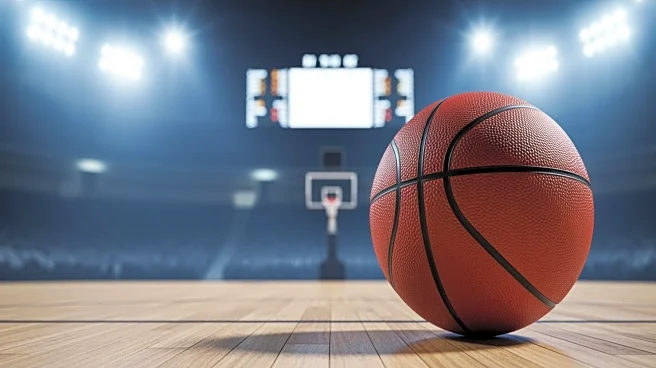What's Happening?
The rise of generative AI has created chaos in copyright laws, as tech companies use human-generated content to train AI models without clear guidelines. This has led to numerous lawsuits, including high-profile cases like The New York Times v. OpenAI,
where AI systems allegedly used copyrighted material without permission. The US Copyright Office has stated that AI-generated works are not eligible for copyright protection unless significant human input is involved. This legal uncertainty affects both creators and AI companies, as they navigate the complexities of intellectual property rights in the digital age.
Why It's Important?
The intersection of AI and copyright law is crucial for the future of creative industries. As AI systems increasingly rely on existing content to improve their capabilities, creators face challenges in protecting their intellectual property. The outcome of ongoing lawsuits could set precedents that shape the legal landscape for AI development and usage. This situation highlights the need for updated regulations that balance innovation with the rights of content creators, ensuring fair compensation and recognition for their work.
What's Next?
The resolution of current lawsuits will likely influence future copyright policies and practices, potentially leading to new standards for AI training and content usage. Creators and tech companies may need to collaborate on licensing agreements that allow for the ethical use of copyrighted material. Additionally, there may be increased advocacy for legislative changes to address the unique challenges posed by AI technologies, ensuring that intellectual property laws evolve to meet the demands of the digital era.
Beyond the Headlines
The debate over AI and copyright law raises broader questions about the value of creative work and the role of government in regulating technological advancements. As AI continues to transform industries, society must consider the ethical implications of automation and its impact on human creativity. This discussion may lead to a reevaluation of intellectual property laws, emphasizing the importance of protecting human contributions in an increasingly automated world.















